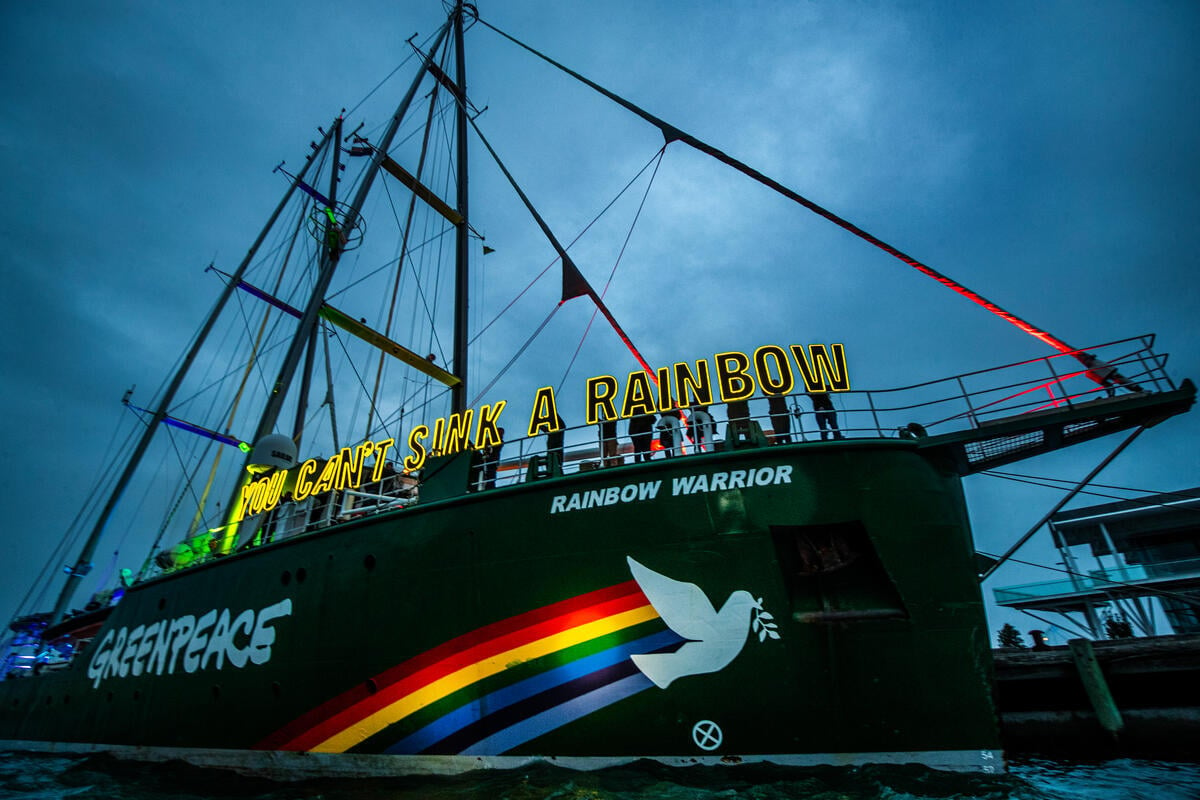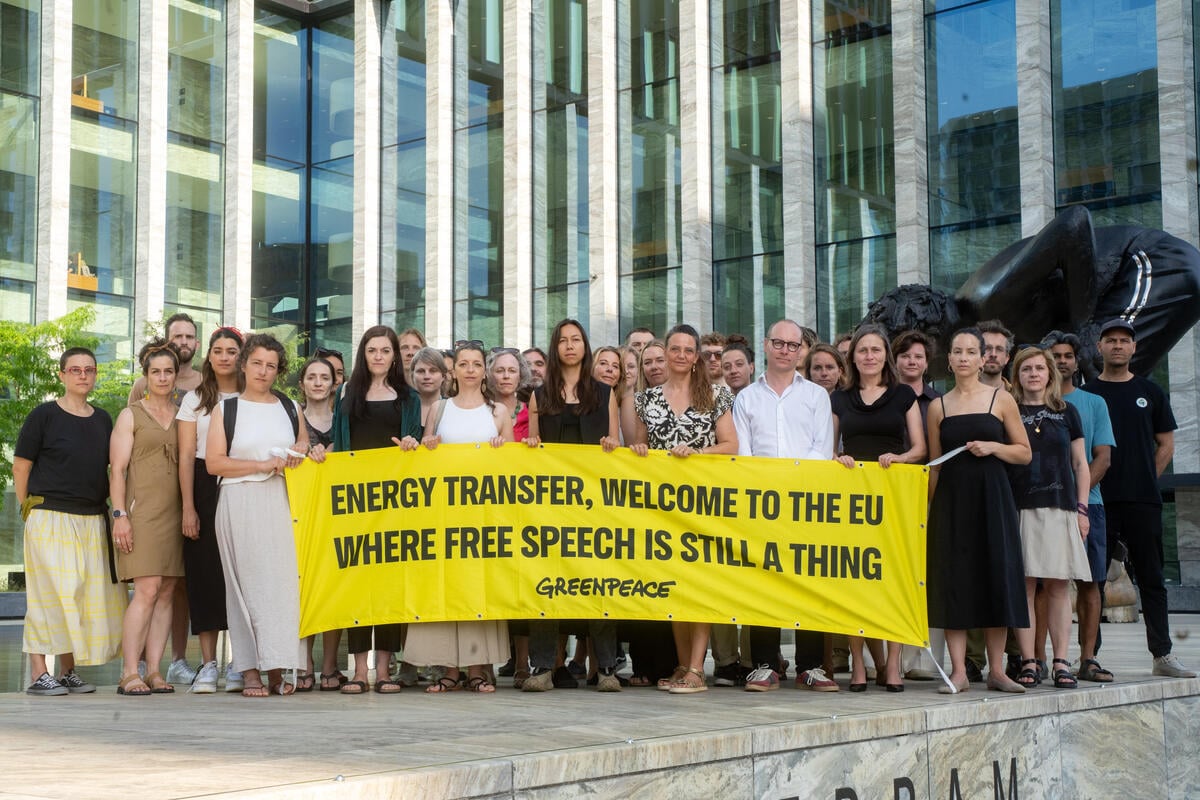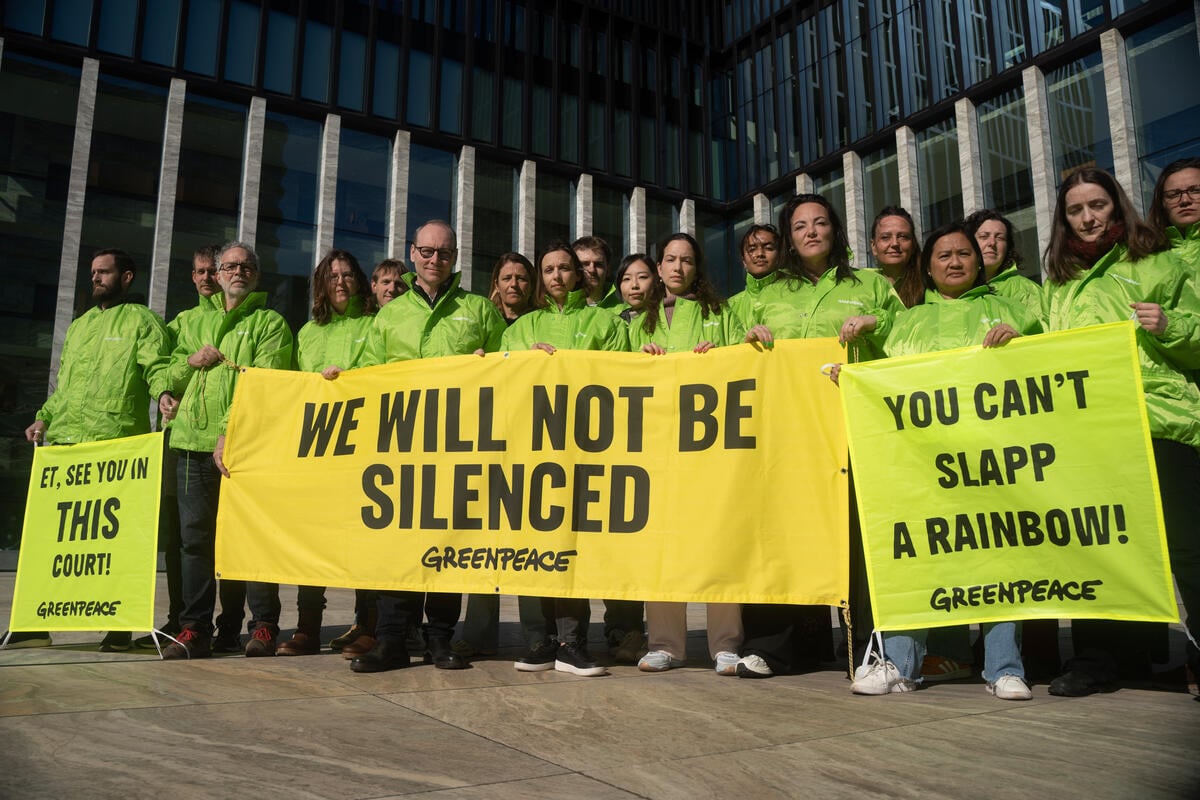Washington, DC — A new Greenpeace USA report shows how Energy Transfer Partners (ETP), the company behind the Dakota Access pipeline, along with the fossil fuel industry advocated and lobbied for legislation in the US aimed at restricting and criminalising protest. The report also finds abuses on human rights, freedom of speech and faulty operations from the company.
“Energy Transfer Partners’ practices are destructive for the planet, for communities and for the health of democracy in the US. Whether it’s hiring private security firms that surveil and infiltrate activist groups, advocating for laws that restrict the right to protest, or plowing forward with pipeline projects against the will of Indigenous people and landowners, Energy Transfer Partners shows what happens when corporate power goes unchecked. Their projects will continue to be lightning rods for protest and controversy,” said Annie Leonard, Executive Director at Greenpeace USA.
The report, “Too Far, Too Often: Energy Transfer Partners’ Corporate Behavior On Human Rights, Free Speech, and the Environment”, details how ETP lobbied for anti-protest legislation both on their own and likely through groups like the American Legislative Exchange Council (ALEC), a group that drafts model bills in line with corporate interests. The move is a legislative effort to increase the criminal penalty for protests concerning “critical infrastructure,” which specifically includes pipelines.
The research reveals the lobbying patterns, campaign donations, and financial connections behind the massive legislative effort that ultimately resulted in more new bills being introduced across the United States, inspired by the protests at Standing Rock and legislation drafted by ALEC.
The report also details how the company is using the courts and Strategic Lawsuits Against Public Participation (SLAPPs) to intimidate opponents of the Dakota Access pipeline project. In August 2017, ETP sued Greenpeace entities and others for USD $900 million, using RICO laws to claim that a collection of environmental groups and Indigenous allies constituted a criminal enterprise.
“Despite efforts made by international agencies and financial backers to understand and remedy some of the major ethical and reputational fallouts that occurred during the Dakota Access Pipeline protests, ETP continues its bad behaviour – attempting to intimidate anyone who stands up against its pipeline projects. ETP’s unwillingness or inability to learn the necessary lessons from DAPL should raise concerns among the company’s financial backers who continue to be exposed to the reputational and financial impacts of ETP’s unacceptable practices,” said Diana Best, Global Finance Pipeline Lead at Greenpeace USA.
Other examples of ETP’s harmful corporate behaviour include:
- Damaging at least 380 sacred and cultural sites along the DAPL route, as reported by the Standing Rock Sioux Tribe
- Working with private security firms like TigerSwan that deployed excessive force and military style counterterrorism tactics against Water Protectors while operating without a license in North Dakota
- Hiring TigerSwan again to suppress opposition to the Mariner East 2 Pipeline in Pennsylvania state
- Aggressive use of eminent domain proceedings to seize private property
- An egregious spill record that includes 527 incidents from 2002-2017 across ETP, Sunoco, and their subsidiaries’ pipelines, 67 of which contaminated water resources, hundreds of enforcement actions and fines of more than US $355 million since 2000.
ENDS
Notes:
Greenpeace USA’s report, “Too Far, Too Often: Energy Transfer Partners’ Corporate Behavior On Human Rights, Free Speech, and the Environment”, can be found on the Greenpeace USA website.
“Pipelines Fights in North America” Greenpeace photo collection in the Greenpeace Media Library
Contacts:
Leola Abraham, Global Communications lead, Greenpeace USA: +1 202-413-8930, [email protected]
Greenpeace International Press Desk: +31 (0) 20 718 2470 (available 24 hours), [email protected]



